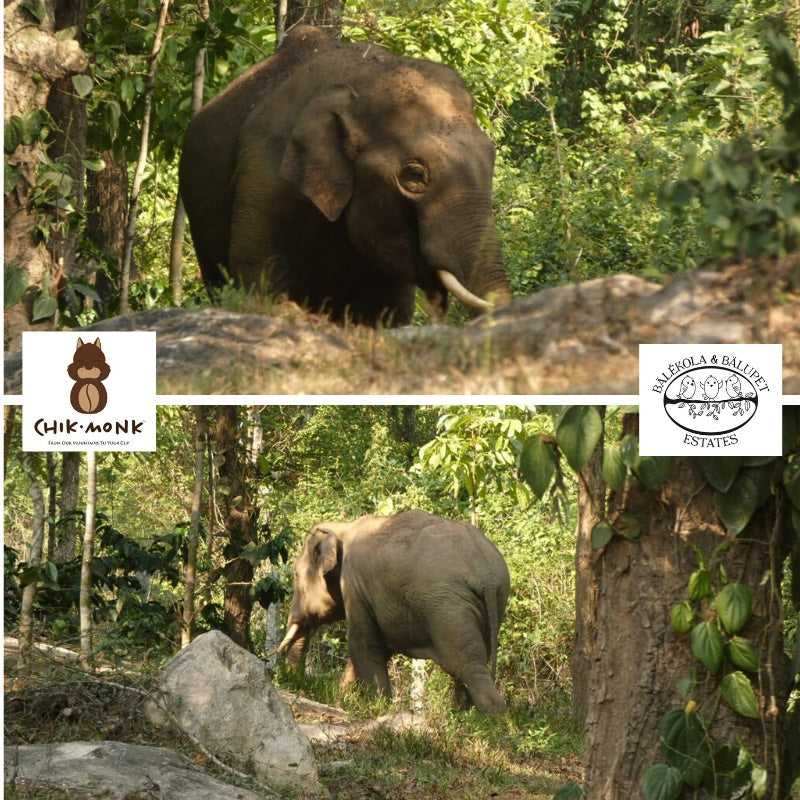Recent Post
Tags

Coffee History of Balekola and Balupet Estates
Nandini Jayaprasad
Sep 05, 2020
H.B. Jayaprasad is a third generation coffee grower who expanded his father Halase Byregowda’s coffee business in Chikmagalur. The estates have a rich history of coffee cultivation and the freedom movement in India.
Halase Byregowda was a coffee grower and local politician in the state of Karnataka while India was under the British Imperial rule. Byregowda, along with ‘freedom fighters’ in Chikmagalur represented Gandhi during his ‘Quit India’ movement in Southern India. Inspired by the principle of Ahimsa or non-violence that’s common to Hindus, Buddhists and Jains, Gandhi came up with the Satyagraha or truth-force movement. The basis of this movement was to non-violently persuade the opposition to see your point of view. Along with Gandhi and millions of other Indians, Byregowda was arrested for civil disobedience by the British officers and later released.
After years of the ‘Quit India’ that spread across the country, the British decided to leave in 1947 and aided with the split of the country into India and Pakistan. Nehru was voted as the first Prime Minister of a free and consolidated India. While forming his Parliament Nehru travelled all over the country picking Members of Parliament (MP). He traveled to Chikmagalur met Byregowda and offered him a position as an MP. Byregowda decided not to go to Delhi to become an MP and stayed in Chikmagalur instead as a local politician governing the community and cultivating high quality coffee.
Prior to 1947, The British planters had access to large coffee holdings in Chikmagalur and Indians were only allowed to own small plots of land. Post 1947, the British planters voluntarily left Chikmagalur and sold their Estates to local Indian planters. This was the turning point when our family expanded their coffee activities. In 1975, Byregowda along with Jayaprasad bought Balur coffee Plantation which was opened in 1842 AD, by a British Planter, Thomas Cannon. Jayaprasad then went on to develop another site Balupet Farm which is growing Coffee, Cardamom, Pepper, Betelnut, Oranges and Spices.
Byregowda passed down the wisdom to Jayaprasad that sustainability and harmony of the ecosystem would lead to quality products. In addition to coffee, he planted fruits, vegetables, and spices. He also set-up rainwater harvesting areas to capture the annual deluge from the monsoons. These efforts ensured that the plants, the community, and the wildlife have sufficient potable water year-round. Additionally, he installed solar panels to generate sustainable power to the farm. Jayaprasad and his daughters continue to carry out that vision today with a self-sustaining ecosystem for the family, the community and the wildlife.
Over the last 40 years, Jayaprasad perfected his specialty estate coffee. He has woven in mango, jackfruit and papaya trees and complimented them with cardamom and pepper which leave their flavor imprint on the coffee. All of the crops are shaded by the natural rainforest which has remained untouched. His efforts have been recognized by Rainforest Alliance who have certified that the estates abide by the highest quality and ethical standards for the coffee, the community and the wildlife.
Jayaprasad was also a key member of the Coffee Board of India in the early 90s when the Coffee market was strictly controlled by the Coffee Board. Along with other members, Jayaprasad was responsible for liberating the coffee market both locally and globally. He and his colleague’s efforts created free trade allowing growers to sell locally and to export their products at prices determined by quality.
← Older Post Newer Post →



